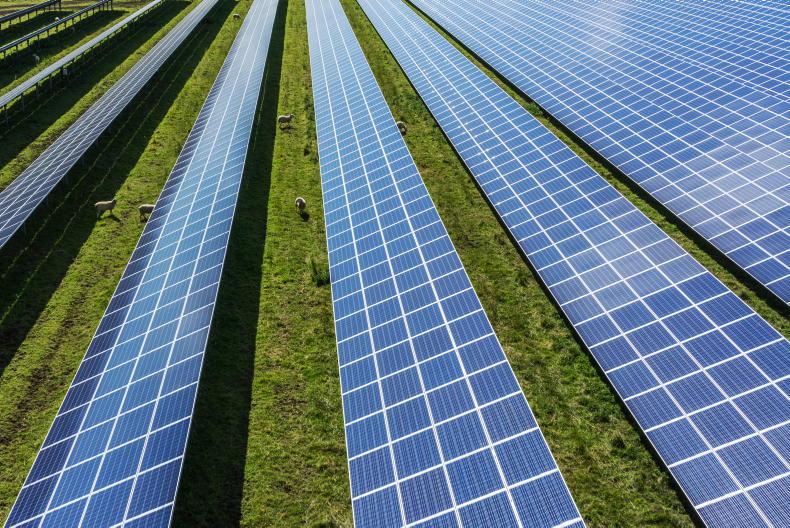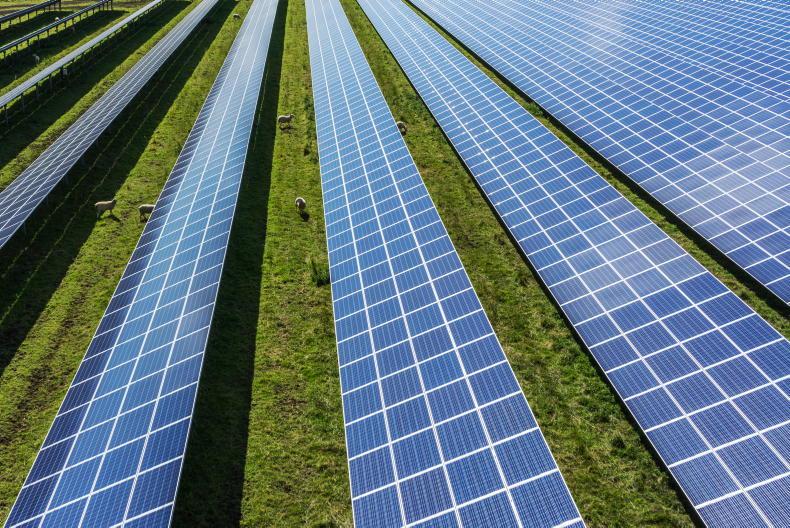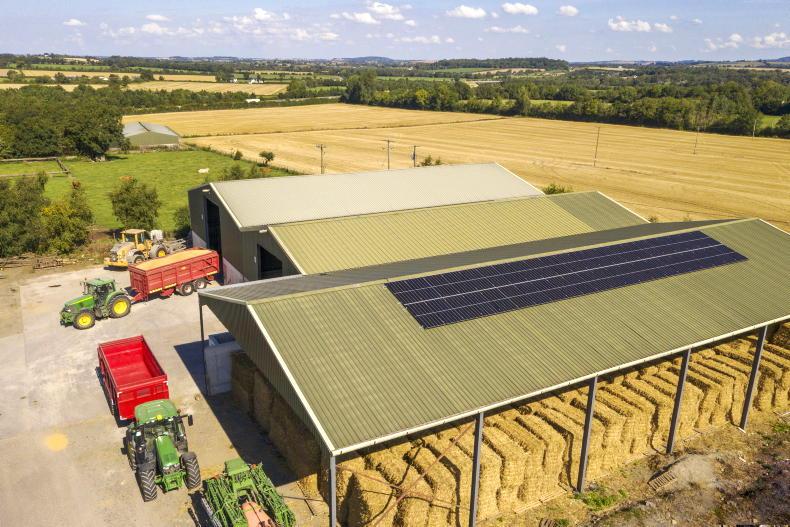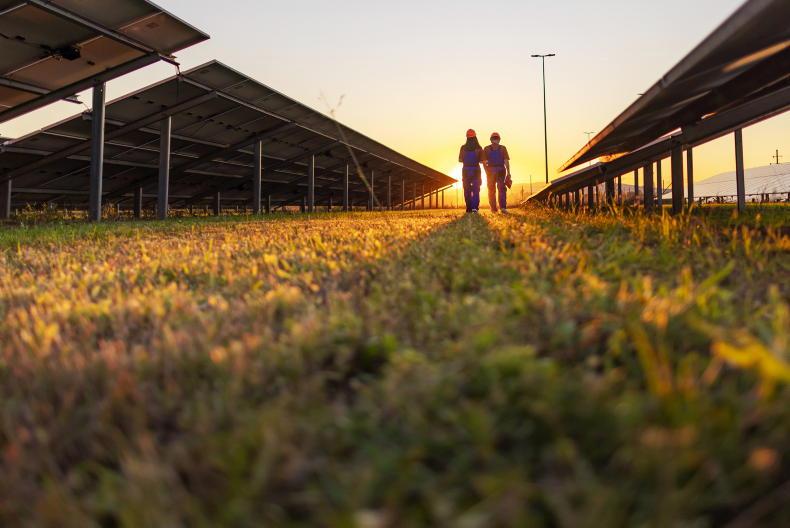The Irish Solar Energy Association (ISEA), the representative body for the solar industry in Ireland, was founded in 2013 to work to influence Government agencies on solar energy using their existing knowledge and experience from developers.
This week, I sat down with Conall Bolger, CEO of the ISEA, to see what role Irish farmers can play in solar.
JK: Why solar? I see you are backing a new industry report?
CB: Despite our well-earned reputation for rain, Ireland has a tremendous capability to generate solar energy.
We estimate that if the right policies were enacted, we could produce enough power from solar PV to power 1.9m homes by 2030. There is an enormous pipeline of projects – easily 2,000MW of solar PV project capacity could be accommodated on the Irish system by 2025.
Solar is predictable, following the passing of the sun, and is hugely economical in the right circumstances. With a cost reduction of 90% in the last decade, the International Energy Agency (IEA) recently stated that solar projects now offer the “cheapest source of electricity in history”.
Recent analysis by AFRY (an international engineering, design and advisory company) showed that if we blend solar PV into our renewable generation fleet, we can capture the benefit of those improving economics.
Increasing the volumes of solar PV a hundred-fold (up to 5,000MW) by 2030 would result in an annual saving to the Irish customer of €106m. This saving comes from the simple fact that solar PV generates during the day, when people need the electricity, replacing less efficient fossil fuel generators that would otherwise run. Displacing these assets delivers even more greenhouse gas savings.
The AFRY research found that solar PV blended with wind would reduce greenhouse gas emissions in 2030 by a further 7%, than if the same power came from wind alone.
Solar PV is starting to deliver at scale. Five of the solar PV projects awarded contracts in last year’s Renewable Electricity Support Scheme (RESS) auction are now under construction.
If we put in place the right frameworks now, all sectors of Irish society can benefit from the energy transition.
How can Irish farms play a part?
Solar PV provides an opportunity for Irish farmers to economically benefit from renewable energy and participate in a sustainable transition. Farmers can engage with solar PV at various levels of involvement.
Solar PV can be placed on the rooftops of homes and work buildings around the farm, including sheds, helping to control energy costs and save farmers money.
The electricity generated can be put to a range of uses, for example, recent experience shows that solar PV can be an efficient way to heat water in a dairy.
At a larger scale, farmers can lease land for utility scale projects or look at developing projects on their own land, either individually or in partnership with others.
Once the solar farm is erected, ISEA analysis shows that about 80% of the site area remains available for agricultural uses such as sheep grazing.
What more can the Government do or what policies need reworking?
There are numerous opportunities for the renewable energy industry and agriculture to work in partnership, but misaligned Government policies and a lack of ambition have hampered previous efforts to facilitate farmers engaging with the sector at scale.
For example, many farmers interested in solar PV under the Targeted Agricultural Modernisation Scheme (TAMS) found that the money they had spent on other modernisation measures used up their TAMS allowance.
The Department of Agriculture, Food and the Marine should implement a targeted, ring-fenced scheme that is focused on enabling farmers to access the benefits of solar PV.
It should be large-scale and headed by a departmental champion with a mandate to encourage renewable electricity on farms.
Policy needs to be reframed so as to encourage farmers to participate in solar PV.
Farmers who produce their own green power should be compensated appropriately. Ambiguities in current policy around the tax treatment of land with solar and the Basic Payment Scheme need to be reconsidered and clarified, with the express intent of allowing farmers to be part of the solar revolution.
The country cannot hit its emissions or renewable energy targets without the active participation of agriculture. ISEA members have seen a high level of interest from farmers in solar PV. Policy needs to help, not hinder.
Solar PV will benefit farmers during challenging times – if policy will let them.










SHARING OPTIONS